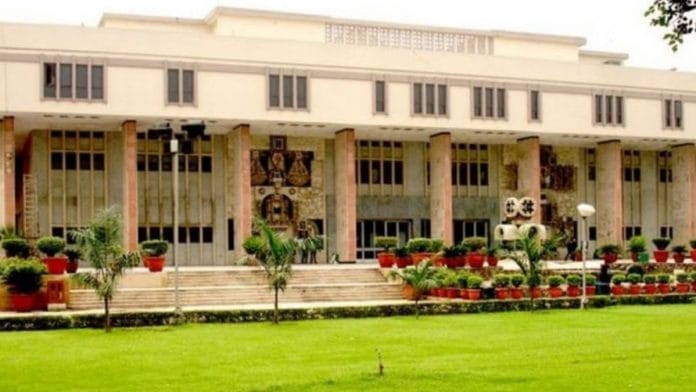New Delhi: A group of legal researchers employed by the Delhi High Court on contract between 2018 and 2025 have filed a plea seeking a long-delayed increase in their salaries.
The researchers have asked the court to hike their monthly remuneration from Rs 65,000 to Rs 80,000, along with 18 percent arrears and interest, with effect from 1 October, 2022.
Although the Delhi High Court Chief Justice in August 2023 approved a proposal for the revision of the monthly remuneration of law researchers to Rs 80,000, the Delhi government is yet to implement the order.
“The failure to act upon the Hon’ble Chief Justice’s order dated 16.08.2023 and continued withholding of arrears, despite clear administrative approvals and constitutional sanction under Article 229, necessitates the present writ petition,” said the plea filed last month.
Although a division bench of Justices C. Hari Shankar and Ajay Digpaul of the Delhi High Court was expected to hear the case Friday, Justice Digpaul recused himself from hearing the matter because his brother’s son was a legal researcher. The case will now be heard on 2 July.
“As one of us (Ajay Digpaul, J.) is not in a position to hear this matter, list this matter before another Bench of which one of us is not a member, subject to orders of Hon’ble the Chief Justice, on 2 July 2025,” the court ruled.
What is their case about?
In Rushant Malhotra vs. Government of NCT of Delhi & Others, a group of legal researchers moved the Delhi High Court for a salary hike, invoking Article 229 of the Constitution.
Article 229, which covers staff and expenses of High Courts, says their working conditions are prescribed by rules made by the Chief Justice of the Court or by some other Judge or officer of the Court authorised by the Chief Justice.
However, this provision also specifies that the rules that relate to salaries, allowances, leave or pensions require the approval of the state governor.
The continued withholding of arrears, despite clear administrative approvals and constitutional sanction under Article 229, served as a basis for the legal researchers to approach the court in this case.
The issue is not new. In 2017, the Delhi High Court’s acting chief justice approved the enhancement of law researchers’ remuneration from Rs 25,000 to Rs 35,000.
However, the following year, the researchers again appealed to the Delhi High Court to seek the Delhi government’s approval to further increase their wages by Rs 15,000 and an increase in the number of posts for this job. In other words, they were seeking a remuneration of Rs 50,000.
What happened after they moved court?
Despite this, multiple reminders had to be sent to the Delhi government to implement the hike, to Rs 50,000, from August 2018 onwards. Additionally, a fresh request for the posts and hike was made to the Delhi Government in September 2019.
But it wasn’t until November 2021 that the government sanctioned Rs 65,000. In doing so, it ignored the requests for prior dues and the creation of 120 posts.
Nearly 2 years later, on 16 August, 2023, the Delhi High Court Chief Justice approved a proposal for a further revision of the monthly remuneration of law researchers from Rs 65,000 to Rs 80,000 with effect from October 2023.
Due to the non-implementation of the 16 August 2023 order, the researchers said they were moving court.
In 2024, several RTIs were filed with the government’s legal and finance departments. The finance department denied having any information about the proposals while the law department, in September last year, refused to share any relevant documents.
It cited Section 8(1) of the RTI Act, which exempts from disclosure any information that relates to “personal information” or that has no connection with “any public activity or interest” as well as any information whose disclosure would cause the unwarranted invasion of an individual’s privacy.
Pointing out that nearly 2 years have elapsed since the 2023 proposal was first sent to GNCTD, after being approved by the HC Chief Justice, the petitioners added that the order for increasing their wages hasn’t been implemented.
(Edited by Sugita Katyal)
Also read: ‘Kareva’ marriages & the legal conundrum of property inheritance Delhi High Court is set to hear






